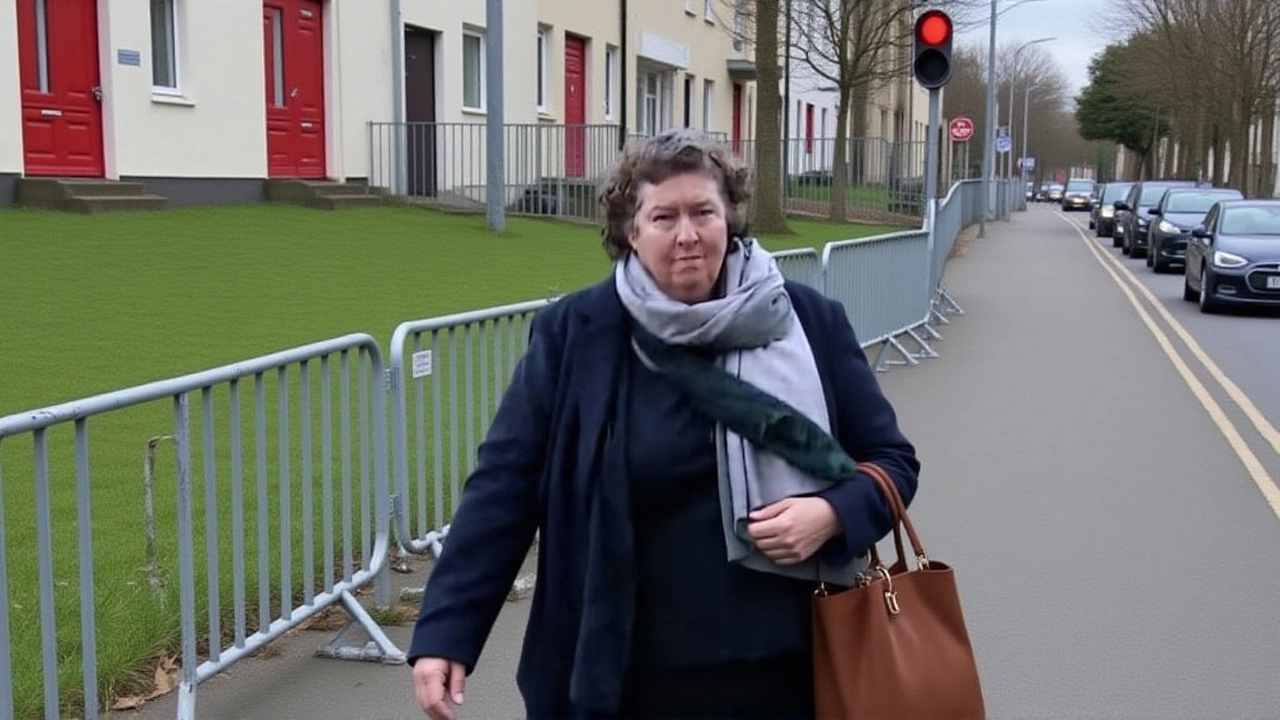Plaid Cymru MP Helen Mary Jones Summoned to Court Over Murder Trial Tweet

When Helen Mary Jones retweeted a social media post about an ongoing murder trial, she didn’t just stir controversy—she crossed a legal line. On February 18, 2021, the former Plaid Cymru Helen Mary Jones, who represented Mid & West Wales in the Senedd, was formally summoned to appear before Swansea Crown Court by His Honour Judge Paul Thomas QC. The reason? A single retweet that, in the judge’s words, risked undermining the integrity of a high-profile case—and potentially prejudiced the jury.
What Happened in the Williams Trial?
The case at the heart of the controversy involved 70-year-old Anthony Williams, who killed his wife, Ruth Williams, shortly after the UK’s first lockdown in March 2020. Williams pleaded not guilty to murder but admitted to manslaughter by reason of diminished responsibility. The prosecution argued he had planned the killing; the defense claimed his mental state, exacerbated by isolation and grief, led to a tragic loss of control.
On February 13, 2021, Jones retweeted a post from a domestic violence campaigner that read: "Another perp using the 'I just snapped'. It is complete b******t! As so many of us will know, there would have been history of domestic abuse. I hope this jury finds him guilty of murder. Rest in peace, Ruth."
But here’s the problem: there was no evidence of domestic abuse presented in court. The judge, His Honour Judge Paul Thomas QC, explicitly told prosecutors on February 15 that the tweet contained "clearly inaccurate" claims about the case. "Those comments have not come from anybody connected with the case," he said, "and they clearly don’t have any idea about the evidence."
Contempt or Carelessness?
Though no juror admitted to seeing the tweet, Judge Thomas didn’t take chances. He warned both prosecution and defense that any external influence—especially from public figures—could taint the trial. "It’s come to my attention," he said, "that there have been some highly inappropriate comments made on social media about this case."
On February 15, the jury returned a verdict: not guilty of murder, but guilty of manslaughter. Williams was scheduled for sentencing on February 18—the same day Jones was summoned to court. The judge noted that while domestic violence is a "terrible scourge," applying a "one-size-fits-all approach" to this case was "highly inappropriate."
On the face of it, the judge said, Jones’s action "amounts to a clear contempt of court." But he chose not to use his summary powers to punish her immediately. Instead, he gave her the chance to explain herself in person. "Those involved will have to make themselves available on Thursday," he said, referring to the sentencing date. "And they should be told that forthwith."
A Pattern of Controversial Posts
This wasn’t Jones’s first misstep. In December 2020, she apologized after retweeting a post that equated discrimination against the transgender community with the Holocaust—a comparison many found deeply offensive. "I acknowledge that it has caused pain and hurt to many," she said at the time.
And back in March 2019, she sparked outrage in the Senedd when she told Conservative MP Mark Isherwood: "If you want more rope to hang yourself with, then I’m happy to provide him with it." The comment came during a heated debate and referenced the suicide of Labour’s Carl Sargeant, whose son, Jack Sargeant, later filed a formal complaint. Jones apologized, but the damage was done.
Each incident reflects a pattern: a well-intentioned activist impulse, misdirected by impulsive social media use and a lack of awareness for legal and emotional boundaries. Jones, who has spoken openly about being dyslexic and dyspraxic, has never claimed perfection—but the consequences keep mounting.
The Broader Implications
The Senedd’s acting standards commissioner later ruled that Jones’s retweet breached the Members’ Code of Conduct. The ruling didn’t just cite the legal risk—it highlighted the erosion of public trust. When elected officials amplify unverified claims about active trials, they don’t just risk contempt charges. They risk making people believe justice is influenced by emotion, not evidence.
Legal experts say this case is a cautionary tale for politicians in the digital age. "Social media isn’t a private diary," said Dr. Elinor Evans, a Cardiff Law School professor. "When you have a platform, you have responsibility. Retweeting a passionate opinion about a trial isn’t activism—it’s interference."
Plaid Cymru declined to comment, calling it "not appropriate for the party to comment" on her court summons. That silence speaks volumes. In an era where political parties are expected to police their members, the lack of response feels like abandonment.
What Comes Next?
Jones’s court appearance on February 18, 2021, was not a hearing for sentencing—it was a show cause hearing. She was required to explain why she shouldn’t be held in contempt of court. No public record of the outcome was released, but the fact that she was summoned at all signals the judiciary’s zero-tolerance stance on social media interference.
Her political career, already diminished after losing the Llanelli seat to Lee Waters in 2021, may never recover. But the real cost isn’t her position—it’s the precedent. If a Senedd member can be summoned for a retweet, then what about the thousands of ordinary citizens who do the same? The line between advocacy and obstruction has never been thinner.
Frequently Asked Questions
Why was Helen Mary Jones summoned to court for a retweet?
Judge Paul Thomas QC summoned Jones because her retweet implied facts not in evidence—specifically, that Anthony Williams had a history of domestic abuse, which was never presented in court. Even though no juror saw the post, the judge ruled it risked prejudicing the trial and constituted potential contempt of court. The law doesn’t require actual jury exposure—only the potential for harm.
Was Anthony Williams guilty of murder?
No. The jury acquitted him of murder on February 15, 2021, after finding insufficient evidence of intent. He had admitted to manslaughter by reason of diminished responsibility, meaning his mental state at the time of the killing was significantly impaired. The prosecution’s case relied on proving premeditation, which the jury did not accept.
What did the Senedd’s standards commissioner conclude?
The acting standards commissioner found Jones’s retweet breached the Senedd’s Members’ Code of Conduct, specifically the sections requiring members to avoid actions that bring the institution into disrepute or interfere with the administration of justice. The ruling emphasized that elected officials must exercise greater care than the general public due to their influence.
Has Jones faced consequences beyond the court summons?
While no formal sanctions were publicly announced after her court appearance, her political capital collapsed. She lost her Senedd seat in the 2021 elections and has since withdrawn from public office. The repeated controversies—including her Holocaust comparison and suicide remark—eroded trust among colleagues and constituents, making a political comeback unlikely.
How common are contempt cases over social media posts in the UK?
They’re rare but growing. Since 2018, at least six UK contempt cases have involved social media posts about active trials, including a 2020 case where a journalist was fined for publishing a suspect’s name before trial. Judges are increasingly vigilant, especially with high-profile cases. The rise of viral activism has blurred the line between advocacy and interference, forcing courts to act.
What should public figures do when commenting on active trials?
They should avoid commenting on specifics, refrain from sharing unverified claims, and never imply guilt or innocence before verdicts. Instead, they can advocate for systemic change—like better mental health support or domestic violence resources—without referencing individual cases. Silence isn’t indifference; it’s responsibility.
